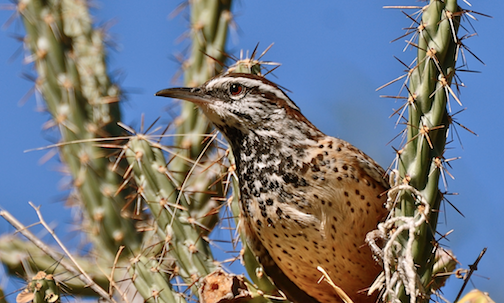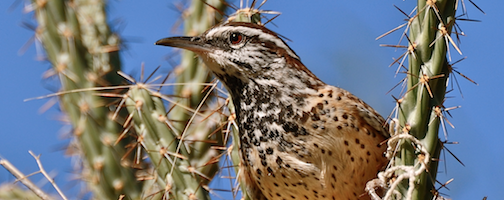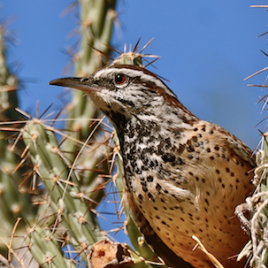
A cactus wren, native to the southwestern United States, is one of the few bird species that practice cooperative breeding. New research shows that such species have higher year-on-year survival. (Photo credit: Linda Tanner, via flickr.com)
A new study shows that birds that cooperate to raise their young have better year-on-year survival than those that don’t. In certain bird species – found mostly in Australasia or Africa – children from the previous year and from other parents help raise the newborns. A careful review of the research on this rare phenomenon shows that it increases survival but surprisingly has no effect on the number of eggs laid each year.
The finding confirms a 20-year-old hypothesis that has at times been very controversial.
Original research paper published in the Proceedings of the Royal Society B: Biological Sciences on June 3, 2014.
Names and affiliations of selected authors

